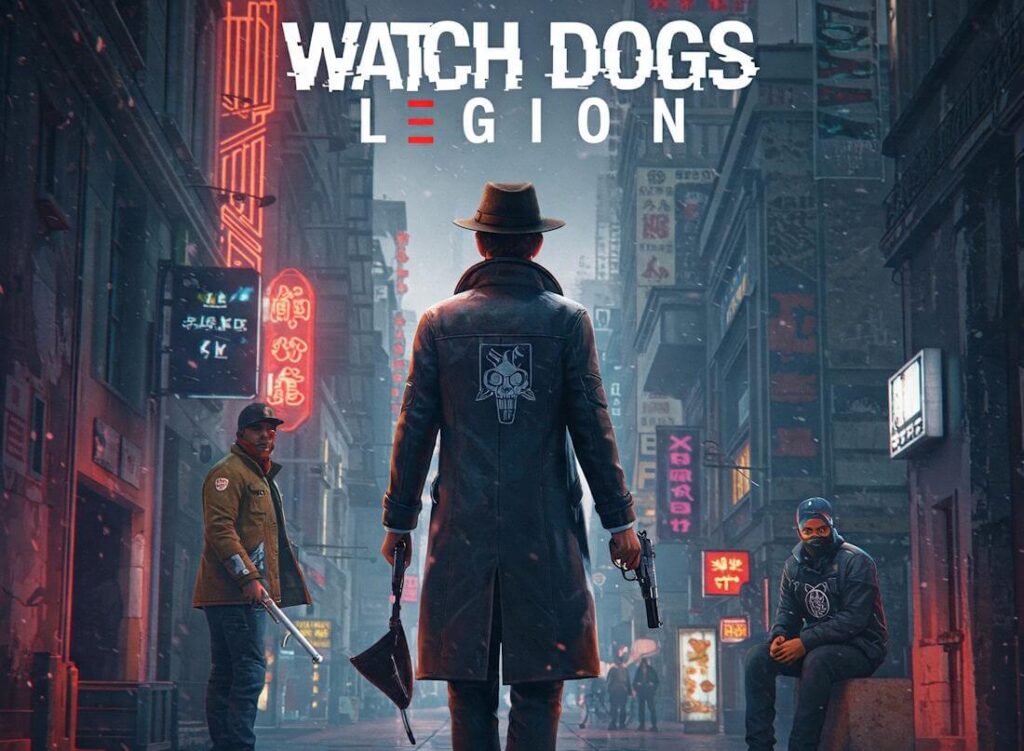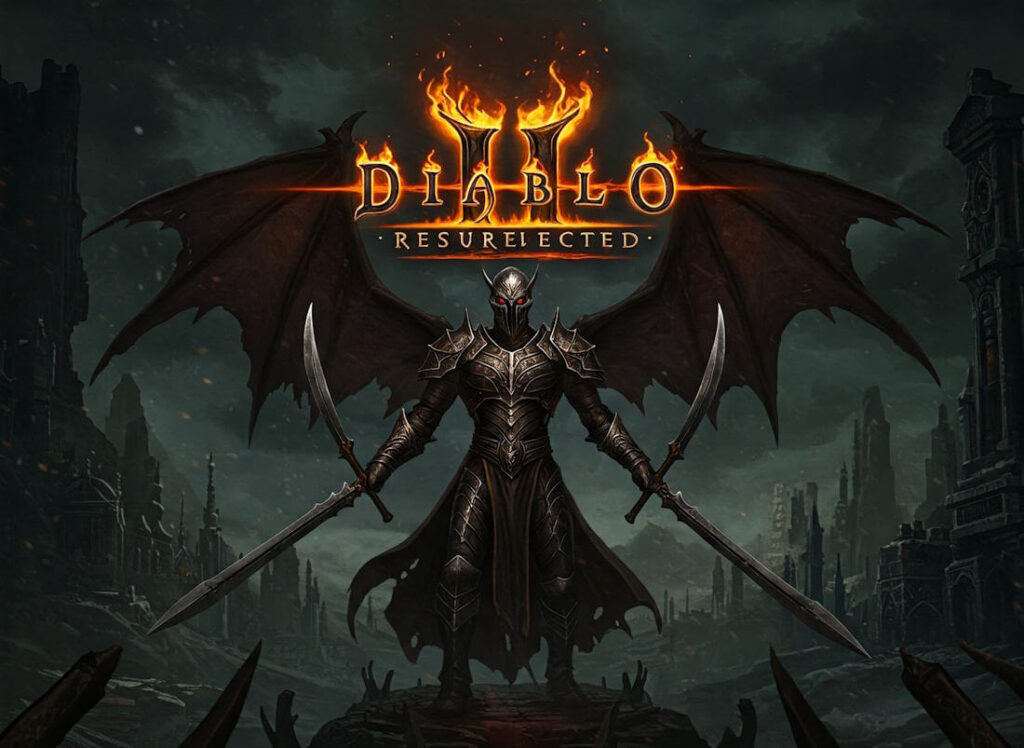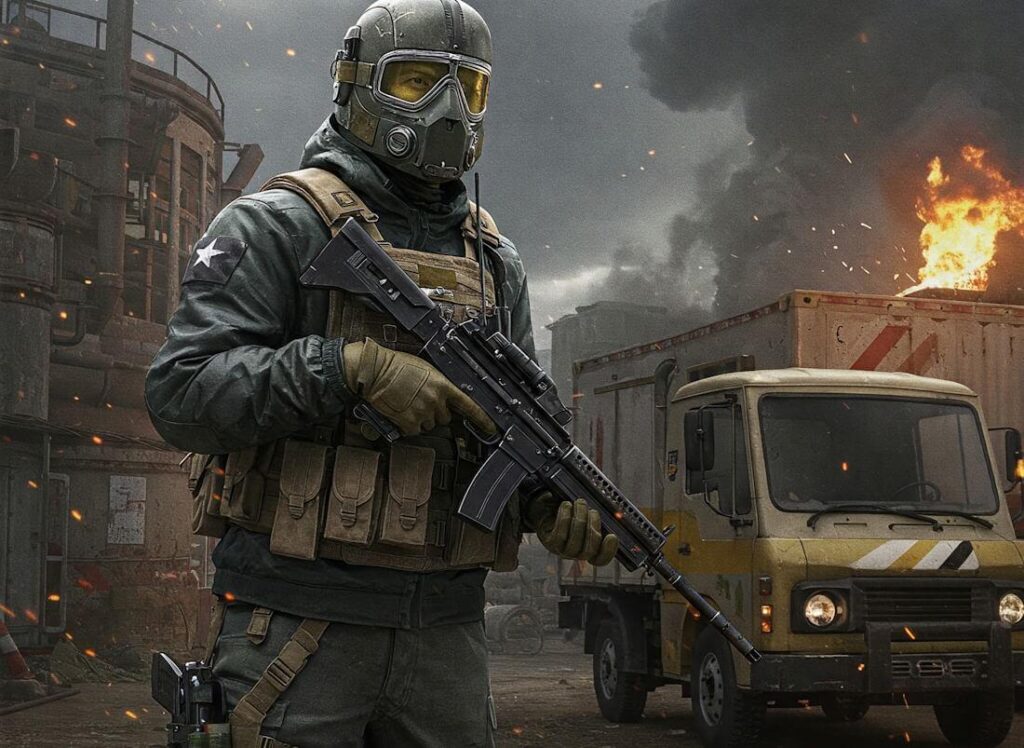‘Watch Dogs: Legion’ is a significant entry in the renowned Watch Dogs franchise, a series that has captivated gamers with its innovative approach to open-world design and hacking mechanics. Released in the context of a post-Brexit London, the game offers a narrative that resonates with contemporary socio-political themes, making it particularly relevant in today’s world. Players are transported to a near-future version of London, where societal structures are on the brink of collapse, and personal freedoms are under constant threat.
One of the standout features of ‘Watch Dogs: Legion’ is its unique gameplay mechanic that allows players to recruit and control any character they encounter within the game’s expansive environment. This system, termed as “Play as Anyone,” empowers players to choose their protagonists based on distinct abilities and backgrounds, thus creating a rich tapestry of gameplay styles. This level of character diversity not only enhances the overall gaming experience but also encourages players to strategize in novel ways, adapting their approach to fit the attributes of the characters they recruit.
The setting of London adds another layer of depth to ‘Watch Dogs: Legion.’ The developers have meticulously recreated iconic landmarks and neighborhoods, immersing players in a city that feels both familiar and alien, with technology integrated into everyday life. Additionally, the game’s narrative explores themes of resistance and rebellion, pushing players to confront moral dilemmas as they navigate through a society under surveillance and authoritarian control.
Through its innovative mechanics and engaging storyline, ‘Watch Dogs: Legion’ stands out as a pioneering title within the gaming landscape. Its exploration of contemporary issues and the unique ability to inhabit a wide spectrum of characters set a new benchmark for player agency and narrative complexity in video games.
The Setting: A Dystopian London
In the game Watch Dogs: Legion, London is reimagined as a complex, dystopian metropolis that reflects the anxieties of a post-Brexit society. This depiction of London serves as a backdrop for exploring significant themes such as government surveillance, social struggles, and the implications of advancing technology on everyday life. The developers have meticulously crafted a narrative that resonates with contemporary societal issues, amplifying the chilling atmosphere of the game.
At the heart of this dystopian vision is an omnipresent surveillance state, where technology is wielded as a tool for control rather than empowerment. Citizens navigate a city riddled with cameras and drones that monitor their every move, echoing fears commonly associated with an overreaching government. This pervasive surveillance challenges notions of privacy and freedom, inviting players to reflect on the consequences of a society willing to sacrifice civil liberties for security. Within this environment, the characters of the game grapple with their diminished agency, struggling against a relentless oppressive force.
Moreover, the social struggles depicted within Watch Dogs: Legion mirror real-world issues faced by many communities today. The game paints a picture of increasing inequality, where marginalized groups fight for recognition in a city that often ignores their existence. The dynamics of resistance and rebellion against an unjust system are integral to the narrative, allowing players to engage with the complexities of activism in a fractured world. As they navigate the streets of this near-future London, players become part of this resistance, highlighting the power of collective action against oppression.
Ultimately, the game’s portrayal of London serves not only as a functional setting but also as a commentary on the potential ramifications of societal choices. By intertwining themes of technology, surveillance, and social justice, Watch Dogs: Legion invites players to question the direction of their own society while offering a chilling glimpse into a possible future.
Gameplay Mechanics: Anyone Can Be a Hero
One of the standout features of Watch Dogs: Legion is its innovative gameplay mechanic that allows players to recruit virtually any non-player character (NPC) found throughout the game’s expansive, post-Brexit London. This system distinguishes it from earlier installments in the series, where players were typically limited to a handful of specific protagonists. In Watch Dogs: Legion, the extensive roster of recruitable characters enables a significant level of strategic depth, as each NPC possesses unique skills, backgrounds, and attributes that can substantially affect gameplay.
The recruitment system empowers players to assemble a diverse team, each member contributing distinct strengths. For instance, some characters may have combat expertise, while others might excel in stealth, hacking, or persuasion. This array of skills not only enhances the tactical options available but also encourages experimentation with different approaches to missions. Players can switch between characters seamlessly, utilizing their strengths to navigate various challenges in the game world. This mechanic creates a fluid experience where the player’s strategies can evolve according to both mission requirements and the abilities of their chosen operatives.
Moreover, the decision to recruit specific characters comes with consequences. Each NPC has a life of their own, complete with motivations and relationships. Actions taken by the player may impact these characters, potentially leading to their arrest or death, which reinforces the significance of each choice. This dynamic intertwines the gameplay mechanics with narrative elements, heightening player engagement through relevant, personal stakes. Thus, Watch Dogs: Legion encourages players to not merely see characters as tools for gameplay, but as integral parts of a living universe, reinforcing the theme that in this dystopian world, anyone can be a hero.
The Role of Hacking in the Game
In “Watch Dogs: Legion,” hacking serves as a fundamental gameplay mechanic that allows players to interact deeply with the environment and its numerous systems. The game’s protagonist, along with various recruits, utilizes a variety of cybernetic tools and techniques that reflect a modern, tech-driven landscape. This integration is not only central to the narrative but also enhances the overall gaming experience, allowing players to engage in strategic decision-making while navigating a post-Brexit London.
Players have access to an array of hacking tools, including drones, cameras, and remote systems, which can be employed creatively to complete missions or manipulate the environment. The ability to control such devices empowers players to explore multiple avenues for overcoming challenges. For instance, by using a simple drone for reconnaissance, players can assess the layout of a location, identify security measures, and pinpoint potential vulnerabilities in enemy defenses. This element of foresight and planning is crucial for effectively executing strategies during gameplay.
Moreover, the game’s hacking mechanics extend beyond mere infiltration; they also enable players to gather critical information about NPCs (non-playable characters) and alter their environments. Each character in “Watch Dogs: Legion” possesses unique attributes and capabilities, and understanding these allows players to create tailored approaches to missions. Whether it’s hacking security systems to divert attention, manipulating data streams for intel, or influencing character behaviors, the depth of these mechanics significantly enriches player engagement.
The strategic elements of hacking in “Watch Dogs: Legion” not only provide depth but also elevate the standard action-adventure gameplay into a more thoughtful experience, where each action can have unforeseen consequences. This infusion of technology within the game encourages players to think critically and adapt their tactics, resulting in a dynamic approach to both mission completion and world exploration.
Thematic Exploration: Rebellion Against Oppression
In the immersive world of Watch Dogs: Legion, themes of rebellion against oppression are intricately woven into the fabric of gameplay and narrative. Set in a dystopian, post-Brexit London, the game portrays a society grappling with authoritarianism and the erosion of civil liberties. These themes resonate powerfully with current societal issues, offering players a reflection of today’s geopolitical landscape.
The various character narratives in Watch Dogs: Legion serve as exemplary vessels for exploring the struggle for freedom. Each recruit possesses a unique backstory that highlights different facets of resistance against oppressive forces. For instance, players may encounter characters who have suffered under surveillance states or those who have lost loved ones to state-sponsored violence. These personal struggles augment the overarching narrative, emphasizing that rebellion is not a singular act but a collective movement that encompasses diverse experiences and motivations.
The core missions within the game further reinforce these themes. Players are tasked with conducting operations designed to dismantle a totalitarian regime that exploits technology to control the populace. Missions often require strategic planning, collaboration, and an understanding of one’s social environment, all underscored by the belief that each small act of defiance contributes to a larger fight for liberation. As players navigate this treacherous landscape, they are continually reminded of the importance of solidarity and community in the face of overwhelming oppression.
Ultimately, Watch Dogs: Legion paints a vivid picture of resistance, urging players to contemplate their roles in the battle against authoritarianism. This thematic exploration not only entertains but also educates players about the stakes involved in the fight for freedom and justice, making the game a significant commentary on contemporary societal issues.
Character Diversity and Inclusion
One of the defining features of Watch Dogs: Legion is its commitment to character diversity and inclusion, setting a benchmark in the realm of video game narratives. The game’s setting in a post-Brexit London serves as a vibrant canvas that mirrors the realities of a multicultural society. Players are afforded the opportunity to recruit characters from a spectrum of backgrounds, ethnicities, and professions, each bringing unique skills and narratives that enhance the gameplay experience.
The recruitment mechanic is quite revolutionary, allowing players to embody a variety of characters, including a grandmother with a penchant for hacking or a construction worker versed in melee combat. This dynamic not only allows for diverse gameplay styles but also fosters a greater emotional connection between the player and the characters. As players interact with these characters, they uncover rich stories that draw upon the individual’s cultural background, enhancing the narrative depth of the game.
The significance of representing diverse backgrounds cannot be overstated. It promotes inclusivity and ensures that players from various walk of life feel seen and heard within the game’s universe. Inclusion in gaming is vital, as it allows for authentic storytelling that resonates with wider audiences, breaking stereotypes often perpetuated in media. By prioritizing a diverse cast, Watch Dogs: Legion not only enriches its narrative but also provides a platform for critical discussions regarding societal issues, reflecting the complexities of modern life in London.
In this manner, diversity within Watch Dogs: Legion transcends mere character aesthetics; it reinforces the message that every character, regardless of their background, has a role to play in the fight against oppression. This multifaceted approach to character design significantly enhances the player’s overall engagement, inviting them to connect more deeply with the story and underscores the game’s overarching themes of rebellion and unity in a fractured society.
Developer Insights: Behind the Scenes
The development of ‘Watch Dogs: Legion’ has been a multifaceted journey for the team at Ubisoft, drawing on a unique combination of creativity, technological innovation, and an acute awareness of real-world socio-political dynamics. According to the Lead Game Designer, the vision was to create an immersive open-world experience set in a post-Brexit London, a city marked by diversity, conflict, and political tension. The developers aimed to reflect this environment authentically by integrating elements from London’s rich history and contemporary challenges into the gameplay experience.
One notable innovation is the implementation of the “Play as Anyone” feature. This concept stemmed from the desire to empower players, offering them the ability to recruit and control virtually any NPC they encounter in the game. This ambition required significant technical advancements, especially concerning artificial intelligence and procedural generation. The team faced challenges in ensuring that each character had distinct skills and backstories, thus rewarding players for their choices while maintaining a coherent narrative. The Technical Director emphasized that the objective was to create a believable ecosystem where each character could contribute uniquely to the story, reflecting the game’s core themes of resistance and personal agency.
Inspiration also came from real-world events, as the development team sought to capture the essence of a politically charged landscape. The project kicked off in a period of significant unrest and societal change, prompting developers to explore how these factors could shape gameplay and narrative. As one of the writers expressed, “We wanted players to feel that their actions had tangible consequences, mirroring the complexities of modern society.” This commitment to realism not only infused the game with depth but also made it relevant and engaging for players immersed in real-life issues.
Player Reception and Critical Reviews
Upon its release, “Watch Dogs: Legion” garnered a mix of reviews from both players and critics alike, reflecting a spectrum of opinions regarding its innovative gameplay and thematic relevance. Critics largely praised the game for its ambitious concept of allowing players to recruit and control any NPC within the game’s open world. This core mechanic not only captivated the audience but also provided a unique approach to narrative engagement. However, the execution of these ideas received varied responses, especially concerning mission design and character differentiation.
Many reviewers commended the game’s expansive portrayal of a post-Brexit London, emphasizing how real-world social issues were seamlessly woven into the gameplay. The dystopian environment resonated with players, invoking reflections on contemporary societal challenges such as government surveillance and civil liberties. This relevance helped “Watch Dogs: Legion” carve a niche in the pantheon of modern video games, highlighting the role of interactive entertainment in stimulating discourse on pressing political themes.
User feedback, however, was more polarized. Some players enjoyed the freedom offered by the game, reveling in the diversity of characters that could be enlisted in their revolutionary efforts. Others pointed out technical issues, including bugs and performance inconsistencies, which detracted from the overall experience. Critics highlighted that the AI-driven NPC recruitment, while innovative, sometimes resulted in characters that lacked depth, leading to a less immersive narrative journey.
Overall, “Watch Dogs: Legion” established itself as a significant title within the gaming landscape, celebrated for its creativity and controversial subject matter. While it faced noteworthy criticisms that affected its reception, its ambition to engage players with important societal issues guaranteed its place in discussions surrounding modern gaming narratives.
Conclusion: The Future of Watch Dogs Franchise
The release of “Watch Dogs: Legion” marks a significant milestone in the evolution of the “Watch Dogs” franchise. With its innovative gameplay mechanics and an engaging narrative set in a dystopian, post-Brexit London, this installment has not only expanded the boundaries of the series but also set the stage for future developments. The concept of recruiting and controlling multiple characters introduces a layer of complexity and diversity to the gameplay, which could serve as a springboard for further innovations in subsequent titles.
As we look ahead, it is reasonable to speculate that future games in the “Watch Dogs” series will continue to build on the strong foundation established by “Legion.” Players may anticipate enhanced multiplayer experiences, allowing for even more dynamic interactions within the game’s universe. Furthermore, the exploration of themes such as surveillance, privacy, and resistance against authoritarianism, which have been central to the franchise, are likely to be deepened in future narratives. The socio-political climate will undoubtedly influence the storylines, offering fertile ground for addressing contemporary issues through the lens of hacking and technology.
Moreover, the success of “Watch Dogs: Legion” opens up possibilities for transmedia projects, such as film adaptations or web series, that could further enrich the franchise and attract a broader audience. As developers seek to innovate while remaining true to the core themes of the series, fans can look forward to a blend of thrilling gameplay, compelling narratives, and thought-provoking themes that resonate with real-world issues. In conclusion, the future of the “Watch Dogs” franchise seems promising, with the potential for engaging new experiences that captivate both loyal fans and newcomers alike.




